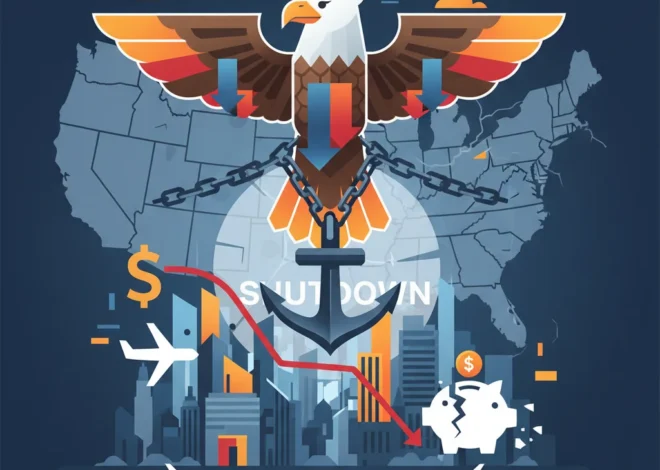
Beyond the Balance Sheet: How a Local School Meal Program Unveils the Future of FinTech and Economic Growth
In the quiet county of Devon, a seemingly small administrative change is set to have a profound impact. An additional 1,300 children will now receive free school meals thanks to a shift towards automatic enrollment. While on the surface this is a heartwarming story of social progress, for astute investors, finance professionals, and business leaders, it’s something more: a powerful indicator of a systemic shift with deep implications for the economy, technology, and the future of investing.
This isn’t just about charity; it’s about efficiency, data, and the quiet revolution of “GovTech.” The real story isn’t the “what” but the “how.” The move from a cumbersome, manual application process to an automated system that leverages existing government data represents a microcosm of the digital transformation sweeping across every sector, from private banking to public administration. By examining this local initiative through a financial and technological lens, we can uncover crucial insights into emerging investment opportunities and the evolving landscape of our national economy.
The FinTech Engine Driving Social Policy
The term “automatic enrollment” is deceptively simple. Behind it lies a complex architecture of data sharing and process automation that mirrors the most sophisticated systems in modern financial technology. For decades, applying for social benefits has been an analogue process fraught with friction, paperwork, and high administrative overhead. It created barriers for the very people it was designed to help and consumed valuable public resources.
The new model, as seen in Devon, functions much like the back-end systems of a challenger bank or a digital lending platform. It involves:
- Data Integration: Securely connecting disparate government databases (e.g., tax records, housing benefits, income support) to create a single, unified view of a family’s eligibility.
- Algorithmic Decision-Making: Using predefined rules and logic to automatically identify and enroll eligible children without requiring a single form to be filled out.
- Reduced Operational Costs: Eliminating the need for manual processing, review, and data entry, thereby freeing up public funds and personnel for more critical tasks.
This is, in essence, financial technology applied to the public sector. The same principles that allow for instant credit decisions, automated stock market trading, and seamless digital banking are now being used to deliver social good more effectively. This shift from analogue to digital in government services is creating a burgeoning “GovTech” market, one that savvy investors are beginning to watch closely. According to a report by Deloitte, the global GovTech market is a multi-hundred billion dollar industry, poised for significant growth as governments worldwide seek to modernize their operations and improve citizen services (source).
Beyond the Handshake: Decoding the Trump-Xi Trade Truce and Its Impact on Your Investments
To fully appreciate the scale of this transformation, consider the stark contrast between the old and new systems.
The following table illustrates the operational leap forward that data-driven automation represents:
| Metric | Legacy Manual System | Automated Enrollment System |
|---|---|---|
| Application Process | Manual form submission, paper-based verification | Zero-touch, data-driven identification |
| Processing Time | Weeks or months | Near-instantaneous |
| Administrative Cost | High (personnel, printing, data entry) | Minimal (system maintenance) |
| Accuracy & Fraud Risk | Prone to human error and potential fraud | High accuracy, reduced fraud through data verification |
| Uptake Rate | Lower, due to awareness gaps and application friction | Approaching 100% of eligible population |
An Investor’s Perspective: The Economics of Human Capital
Beyond the technological marvel, the Devon initiative is a masterclass in long-term economic investing. A common misconception is to view social spending as a drain on the economy. However, a more sophisticated economic analysis reveals it as a crucial investment in human capital—the single most important driver of long-term economic growth.
A child who receives regular, nutritious meals is more likely to perform better academically, have fewer health problems, and ultimately become a more productive member of the workforce. This isn’t just a social theory; it’s a hard economic fact. Research from organizations like the Food Research and Action Center has consistently shown that well-nourished children have better cognitive function, higher attendance rates, and improved educational outcomes (source). Each pound invested in a child’s nutrition and education today can yield manifold returns in future tax revenue, reduced healthcare costs, and increased GDP.
From a portfolio perspective, this is akin to investing in the foundational infrastructure of the economy. While it doesn’t offer the immediate volatility and potential returns of day trading, it strengthens the entire market’s foundation. A healthier, smarter, and more productive population leads to a more robust and resilient economy, which benefits every company listed on the stock market. Therefore, policies that efficiently invest in human capital are not just socially responsible; they are fundamentally pro-growth and pro-market.
The Next Frontier: Blockchain, Decentralized Identity, and Public Services
If the current system in Devon is the FinTech of today, what does the future hold? The logical next step in this evolution is the integration of technologies like blockchain to create a truly citizen-centric model of service delivery.
Imagine a future where every citizen has a self-sovereign digital identity, secured on a blockchain. This identity would hold verified credentials (e.g., proof of income, residency, dependents) that the citizen, and only the citizen, controls. Instead of the government pulling data from various silos, a citizen could grant temporary, cryptographically-secured access to specific, relevant data points to prove eligibility for a service like free school meals.
This model offers several transformative advantages:
- Enhanced Privacy: Citizens control their data, eliminating the need for large, centralized government databases that are prime targets for cyberattacks.
- Ultimate Efficiency: Verification becomes instantaneous and cryptographically certain, eliminating any remaining administrative friction.
- Portability: A citizen’s eligibility data could be seamlessly and securely shared with different public and private services (e.g., banking, utilities, healthcare) with their explicit consent, radically simplifying all aspects of their financial and civic life.
While still in its nascent stages, the application of blockchain technology to public services is a field ripe with potential. It represents the philosophical endpoint of the trend we see in Devon: using technology not just to make the state more efficient, but to empower individuals within it.
The BoJ's Dovish Pause: Why Japan's Rate Decision Is Sending Shockwaves Through the Global Economy
Macro Implications: From a School Cafeteria to the Stock Market
It’s easy to dismiss a local news story as irrelevant to the high-stakes world of finance and trading. However, it is precisely these grassroots changes that signal major tectonic shifts in the broader economy.
The efficiency gains from GovTech, replicated across thousands of councils and government departments, can unlock billions in public funds. This capital can then be redirected towards productivity-enhancing investments like infrastructure, R&D, and education, creating a powerful tailwind for the entire economy. Furthermore, the GovTech industry itself represents a significant new sector for investment, encompassing everything from cloud computing and data analytics to cybersecurity and, eventually, blockchain development.
For finance professionals, the key takeaway is to look beyond the headline numbers of the stock market and understand the underlying drivers of economic health. A society that uses financial technology to efficiently invest in its own people is building a more resilient and dynamic economy for the future. The automatic enrollment for school meals in Devon is more than just a local policy update; it’s a leading indicator of a smarter, more efficient, and ultimately more prosperous economic future.
The Great Tech Divergence: Why Wall Street Cheered Alphabet and Punished Meta
In conclusion, the decision to automate free school meal enrollment for 1,300 children is a powerful case study in modern economics. It demonstrates the convergence of social policy and financial technology, highlights the immense ROI of investing in human capital, and offers a glimpse into a future where emerging technologies like blockchain could redefine the relationship between citizens and the state. For those in finance, banking, and business, the lesson is clear: the most profound economic trends often begin not in the trading pits or boardrooms, but in the quiet, data-driven improvements that shape the lives of the next generation.


